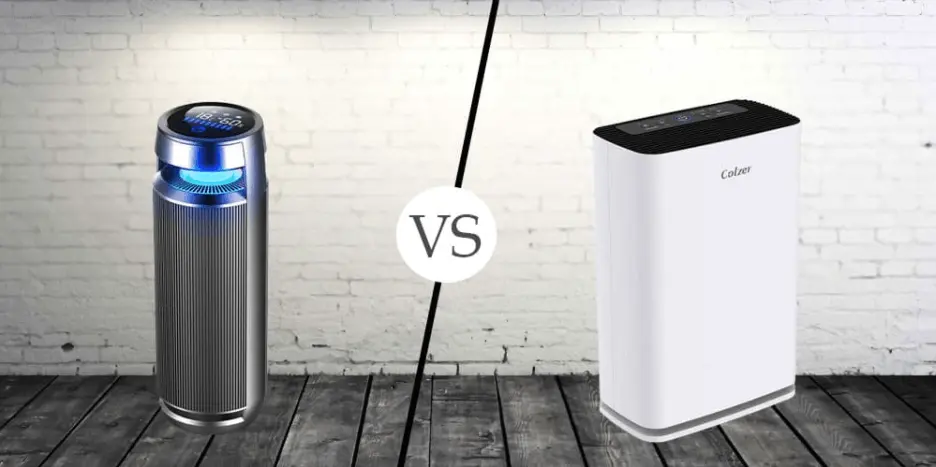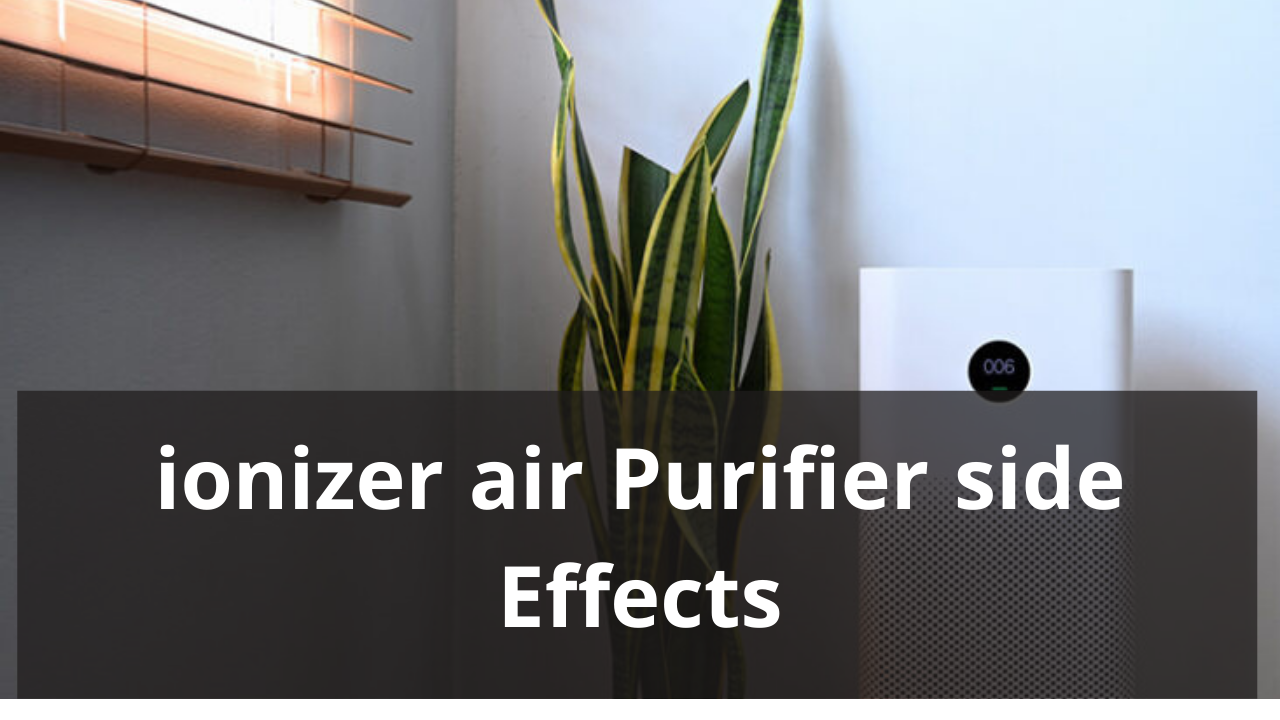ionizer air purifier side effects. Though an ionizer is becoming a popular option to purify the air because of no filters hassle, there indeed, ionizer air purifier side effects in case it is not used properly. They are prone to create ozen side effects. Similarly, there are more side effects that are carried out with it. Let’s give it a quick read to our blog.
What are the ionizer air purifier side effects?

The astounding data oan the possible risks posed by ionizer devices in your surroundings is frightening. The ionizer air purifier placed in a confined place is more likely to create more Ozone (a lung irritant) than the safe level.
Breathing in Ozone can cause
- irritation in throat
- discomfort in chest
- coughing and some other respiratory systems
- Shortness of breath
- Respiratory infections
- It could also leads to the symptoms of asthama and bronchitis.
The release of ozone into the air you breathe is not only harmful to your health, but it is also harmful to the quality of the air in the environment.
What is an Ionic air purifier?

If somebody says ionizer or ion generator or air ionizers, don’t confuse yourself, they are talking about ionizer air purifiers. Sometimes, you can also find electrostatic air purifiers. Such an air purifier works through the chemical properties as the ion either is positively charged or negatively charged particle.
How Ionic air purifier works?
Using the electricity, an air ionizer creates the negatively charged ions and releases them into the air. These negative ions then attach to the positively charged ions i.e. the impurities in the air like pollens, pet hair, dust particles, smoke, allergens, and even any free-floating bacteria.
When these two oppositely charged ions bond together, the floating of such particles becomes inevitable as they become dene particles, incapable of floating anymore, and falls. (you might have seen them on your televisions or laptops while dusting.
Do ionizer really work?
To enhance your indoor air quality, you must address two categories of pollutants: particle pollutants and gaseous pollutants. To assess if ionizers are beneficial, we must consider both types.
Gaseous Pollutant
Ionizers do not remove smells, VOCs, or gaseous pollutants from the air. They are solely intended to remove particulate pollutants from the air and are thus ineffective in removing gaseous pollutants.
As a byproduct, ionizers can generate ozone, and ozone can have an influence on gaseous contaminants (and not necessarily a beneficial one). We’ll get into more depth about ozone later.
Particles of air pollutants
An ionizer on its own (without any additional air purification technologies it may be coupled with) has limited effectiveness in eliminating particle contaminants from the air.
When particles are electrically charged, they cluster together and precipitate out of the air, and the particles end up on the floor or attached to furniture, carpets, or curtains.
With frequent cleaning, a large proportion of the particles, including dust, pet allergies, mold spores, and other pollutants, are thrown back into the air by air currents.
To make it more efficient, these purifiers also allow combining their technologies with other kinds of air purifiers such as HEPA filters. This will additionally help to filter the air well.
You can also go for the carbon filters to remove VOCs (volatile organic compounds, gases or other smells.
The Positive Side of Ionizer
Evidence suggests that air ionizers remove germs, dust, cigarette smoke, molds, soot, pollen, and the home smells from the air. This has a major influence on those who have hay fever or other seasonal allergies.
Asthmatics have also observed an improvement in the quality of the air they breathe after using an air ionizer. Air ionizers can help reduce stress and enhance sleep habits. According to several research, persons suffering from Seasonal Affective Disorder (SAD) may benefit from utilizing an air ionizer in their home.
The claimed physiologic effects of negative ions, according to Felix Gad Sulman, MD, have had significant advantages for individuals who utilized an air ionizer.
Drawbacks
Here are some drawbacks that include
- Though some of the ionizers are fanless so, it will take a long time to purify the air.
- With the rise in air pollution day by day, an air purifier has become an essential device in every home as from dust to pet hair, they are capable of producing clean and filtered air. Minimizing the hassle of maintaining the filters, an ionic air purifier is becoming more popular.
- In any case, ionisers are inefficient. Fanless versions clean a tiny quantity of air, and even fans have poor clean air delivery ratings (CADR).
- Small, fanless versions, on the other hand, are incredibly quiet and simple to carry from room to room.
Ionic Air Purifier Vs HEPA air Purifier

While both of these technologies purify the air by removing toxins and other indoor pollutants, they do so in quite different ways. The primary distinction between these two technologies is the manner in which they remove pollutants from the air.
Ionic air purifiers, as we discussed earlier, send out electrically charged ions into the air that bond with the harmful pollutants in the air.
Usually, the particles that they are able to attract are bigger, about 10 microns in size are larger and they are collected on a collection plate that needs to be cleaned once full. This technology does not utilize a fan, and in most cases, they will produce O3. (ozone) a harmful byproduct into the air.
Whereas,
A HEPA air purifier, on the other hand, works by drawing air into the device and passing it through a thick, physical filter that captures airborne pollutants. It will then utilize a fan to blow clean air into the surrounding area. This technique can catch particle matter as small as 0.3 microns, allowing it to trap more pollutants than conventional ionization air purifiers. These purifiers, however, require frequent maintenance of their filters, which should be replaced every 2 to 3 years.
Overall, the choice is yours, but in terms of performance, a hospital-grade HEPA filter and HEPA air purifier will outperform an ionic purifier and will not emit hazardous by-products into your air.
